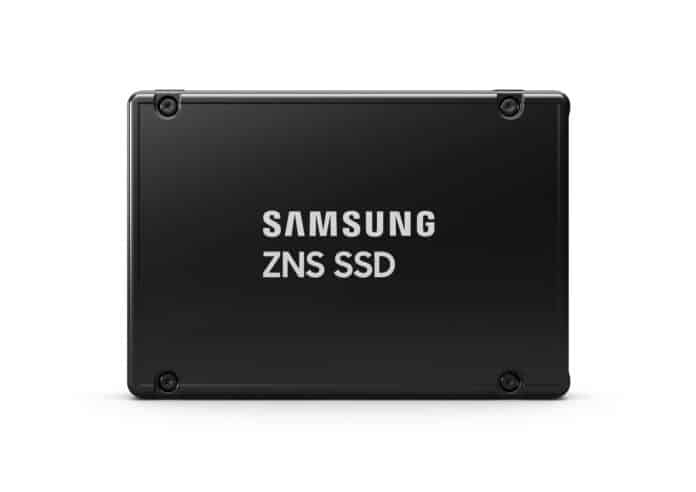Samsung Electronics has unveiled its new enterprise solid-state drive (SSD) featuring Zoned Namespace (ZNS) technology — the PM1731a. Leveraging ZNS, the SSD will maximize available user capacity and offer an extended lifespan in storage server, data center, and cloud environments.
The ZNS SSD reflects Samsung’s long-term plan to leverage quad-level cell (QLC) NAND technology it its next-generation ZNS drives, enabling higher thresholds for storage performance and capacity in enterprise systems now and in the future, notes Sangyeun Cho, senior vice president of the Memory Software Development Team at Samsung Electronics.
ZNS SSD Features
ZNS allows data to be grouped based on their usage and access frequency, and stored sequentially in independent zones within an SSD. This feature allows ZNS SSDs to reduce the number of write operations, lowering the driver’s write amplification factor (WAF) and enhancing the SSD’s efficiency and longevity.
According to Samsung, its new ZNS SSD can achieve a WAF close to one, a major improvement over typical server SSD values between three and four. This will make the drive last up to four times longer than conventional NVMe SSDs, making it a greener, more sustainable solution for server infrastructures.
ZNS also allows users to take advantage of the SSD’s full capacity by eliminating the need for overprovisioning, which would have required reserving some storage space for background tasks. These improvements will enable enterprise customers to handle big data and artificial intelligence applications with much greater efficiency.
Also read: SSD Lifespan: How Long Will Your SSD Work?
Form and Availability
Built upon Samsung’s sixth-generation V-NAND, the 2.5-inch PM1731a will come in two terabyte (TB) and four TB models. Ideal for enterprises and public cloud companies who run mission-critical, data-intensive applications, the SSD will feature dual ports, ensuring the drive is fully accessible for continuous operations and minimizing downtime.
Samsung will make its ZNS technology available to xNVMe, which provides software libraries and tools to improve the performance of NVMe devices. The company is also participating in the Storage Performance Development Kit (SPDK) community created by Intel, enabling SPDK users to implement ZNS more easily.
Samsung plans to mass-produce ZNS SSDs in the second half of 2021.
Read next: 9 Best SSD Health Check Tools: Monitoring SSD Health and Performance



